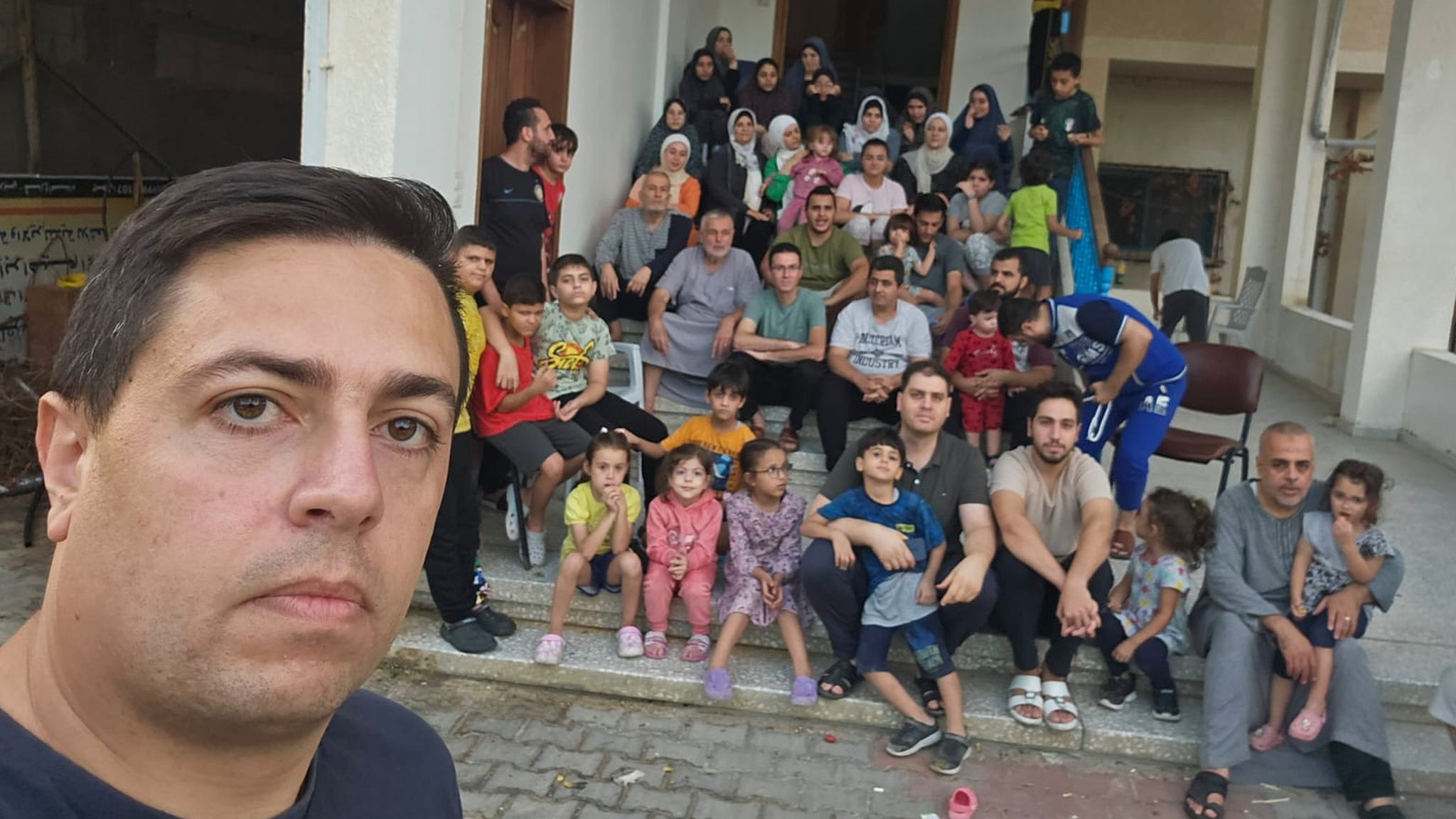Israel aims to cut Gaza ties after war with Hamas
- Published
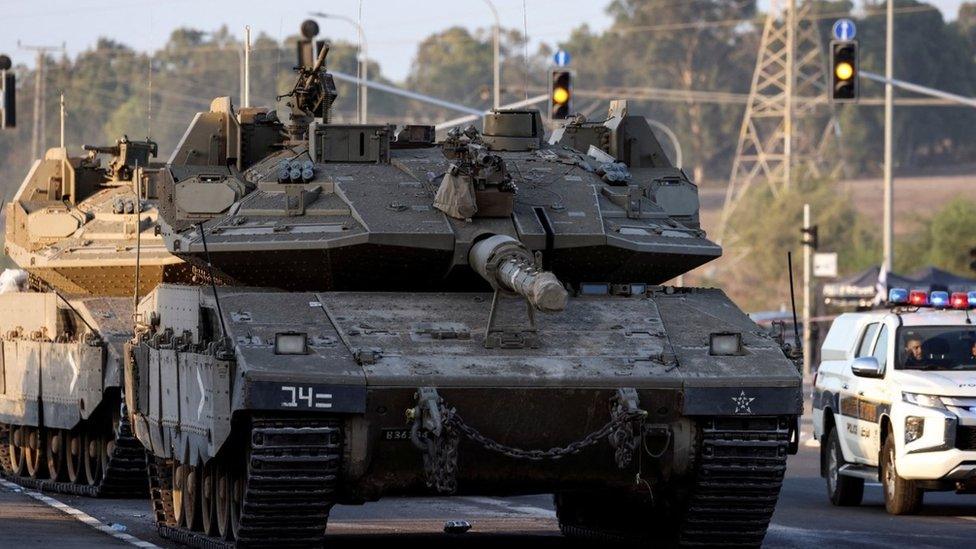
Israeli troops are poised for a ground offensive
Israel has suggested that the long-term aim of its military campaign in Gaza is to sever all links with the territory.
Israeli Defence Minister Yoav Gallant said that once Hamas had been defeated, Israel would end its "responsibility for life in the Gaza Strip".
Before the conflict, Israel supplied Gaza with most of its energy needs and monitored imports into the territory.
The statement comes as Israel continues its strikes on Gaza and aid remains blocked on the border with Egypt.
The bombardments are a response to attacks by Hamas gunmen on Israel on 7 October, in which at least 1,400 people were killed and 203 taken hostage. Israel is now poised to launch a ground offensive.
On Friday, Mr Gallant told a parliamentary committee that the first stage of the campaign was meant to destroy Hamas's infrastructure, according to a statement from his office.
Israeli forces, he added, would then launch "operations at lower intensity" to eliminate "pockets of resistance".
The third phase, he said, "will require the removal of Israel's responsibility for life in the Gaza Strip, and the establishment of a new security reality for the citizens of Israel".
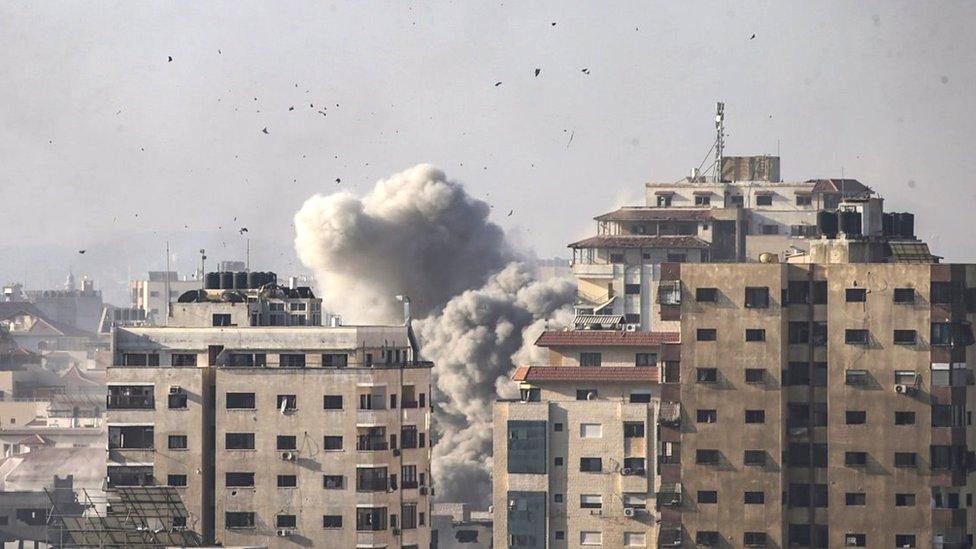
There has been no let-up in Israeli air strikes across the Gaza Strip
Although Israel withdrew from Gaza in 2005, the UN regards the strip - along with the West Bank and East Jerusalem - as occupied land and considers Israel responsible for the basic needs of its population.
Israel has previously allowed Gazans to cross the border for work. It has also overseen imports into the territory to prevent weapons from reaching Hamas.
Following the 7 October attacks it cut electricity supplies, as well as deliveries of food and medicines. The UN calls the situation there "beyond catastrophic".
The US and Egypt have reached a deal allowing some supplies to start bringing relief Gaza's 2.2 million residents.
An initial convoy of 20 trucks had been expected to enter southern Gaza through the Rafah border crossing on Friday, but they are still stuck on the Egyptian side.
Humanitarian organisations say much more aid is needed.
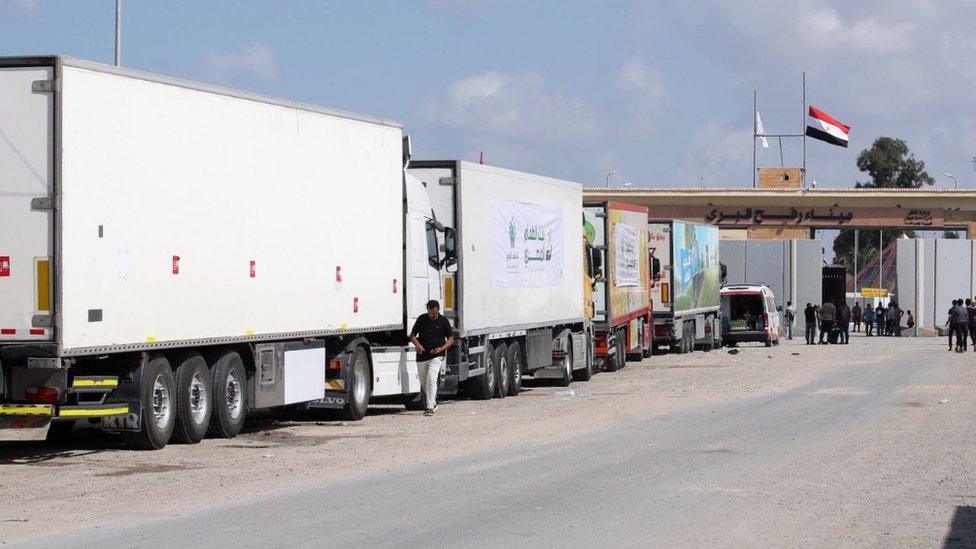
A humanitarian convoy is still waiting to be allowed through the Rafah crossing
On Friday UN Secretary-General Antonio Guterres visited the crossing with a plea for aid trucks to be allowed into the territory.
"These trucks are not just trucks - they are a lifeline, they are the difference between life and death to many people in Gaza," he said. "What we need is to make them move."
Meanwhile Palestinian Authority President Mahmoud Abbas has confirmed that he will join several world leaders at a summit in Cairo on Saturday aimed at achieving a ceasefire.
The event, hosted by Egyptian President Abdul Fattah al-Sisi, will involve talks on trying to end the Israeli-Palestinian conflict based on a two-state solution.
Those attending will also include Mr Guterres and representatives from the EU, as well as several Arab and European countries.

More on Israel-Gaza war
Follow live: Latest updates
History behind the story: The Israel-Palestinian conflict
From Gaza: BBC reporter flees Israel bomb warning

Related topics
- Published13 October 2023
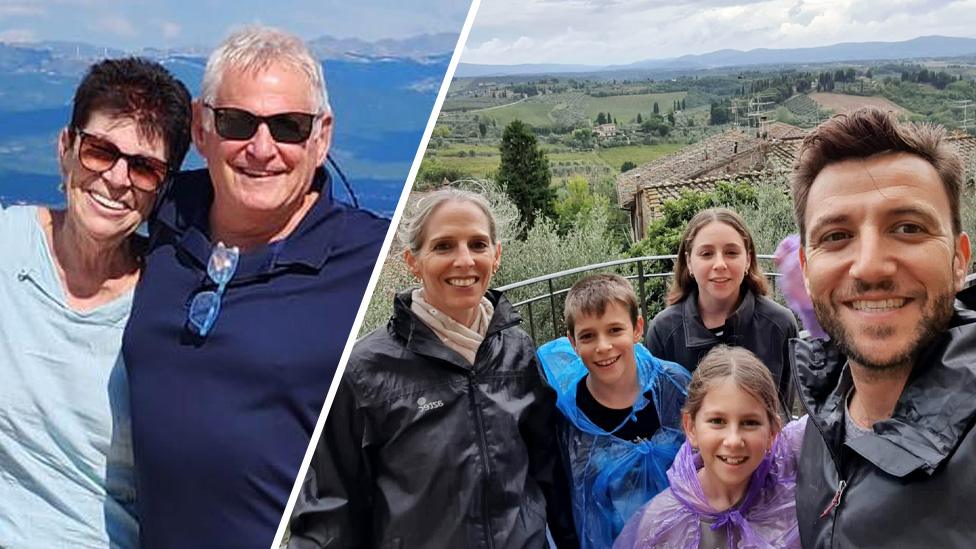
- Published19 October 2023
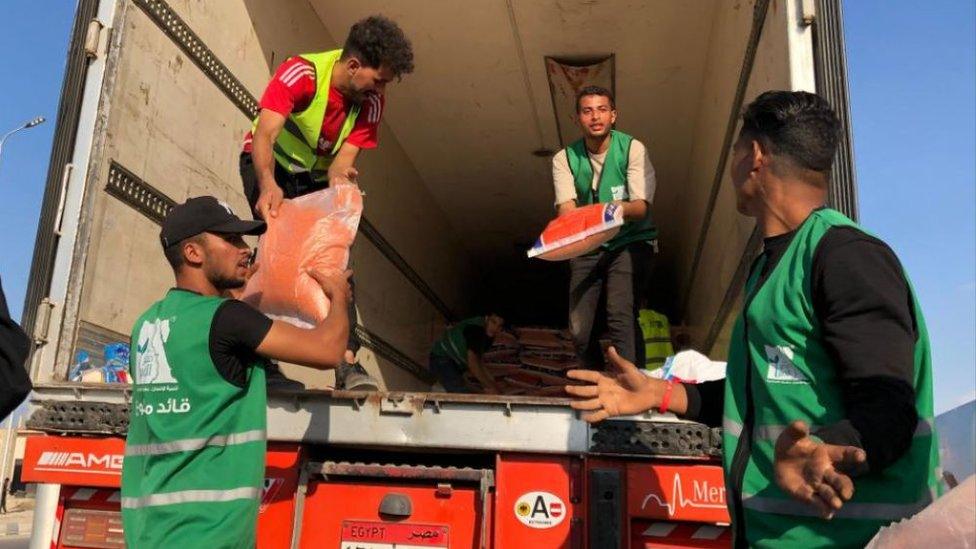
- Published1 November 2023
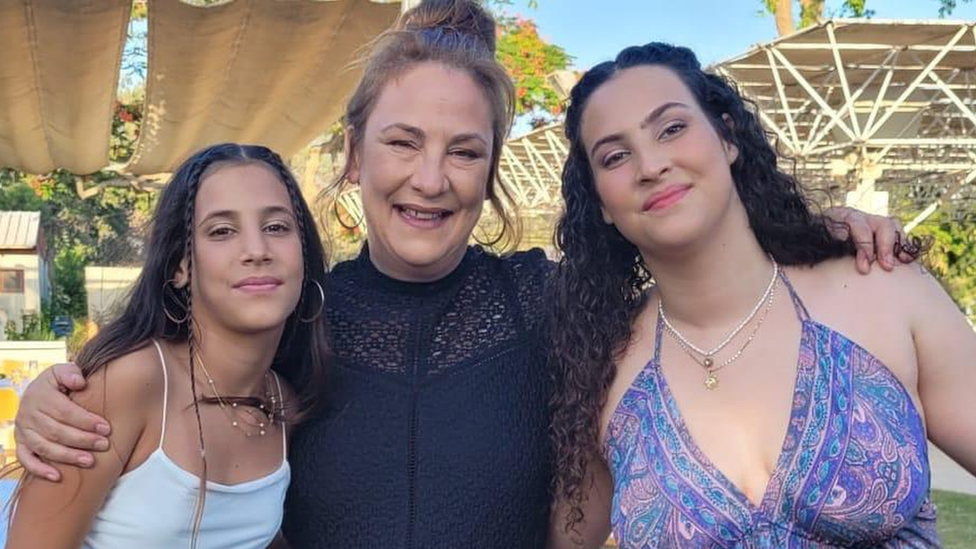
- Published24 October 2023
